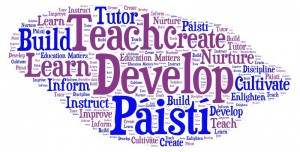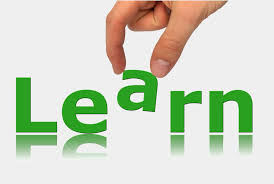I’ve always thought it worthwhile to do a little dissecting of one’s work after it has been left for a time to digest.
There is a certain amount of work that goes into class prep, and class instruction, but very little afterthought or time spent reviewing the results.
 Yes, we have score sheets to study, exam results to compare term in, term out, and at 3rd level lecturers have peer assessment where they can acquire valuable feedback from their peers in how they might be able to fine tune their lecturing skills; but we spend very little time (immediately after each class) contemplating how effective the teaching and learning really was.
Yes, we have score sheets to study, exam results to compare term in, term out, and at 3rd level lecturers have peer assessment where they can acquire valuable feedback from their peers in how they might be able to fine tune their lecturing skills; but we spend very little time (immediately after each class) contemplating how effective the teaching and learning really was.
So we have to ask the question: “Is there something to be learned even when a lesson is over?”
[click_to_tweet tweet=”We spend very little time contemplating how effective the teaching and learning really was. So we have to ask the question: ‘Is there something to be learned even when a lesson is over?’ #EducationMatters #EdChatie” quote=”We spend very little time contemplating how effective the teaching and learning really was. So we have to ask the question: ‘Is there something to be learned even when a lesson is over?'”]
A recent study found that people who complete a mentally challenging task and then reflect on what they learned and how they learned it may offer an added advantage for future learning outcomes.
In “Learning by Thinking: How Reflection Aids Performance,” researchers at HEC Paris, Harvard Business School, and the University of North Carolina found that reflecting directly after a lesson increases individuals’ performance the next time they return to the material. While most research on learning focuses on doing, the authors say, this is the first study to test the effects of reflecting on learning.
“… “When we stop, reflect, and think about learning, we feel a greater sense of self-efficacy,” Francesca Gino, one of the study’s authors, told Forbes. “We’re more motivated and we perform better afterward…”
[click_to_tweet tweet=”‘When we stop, reflect, and think about learning, we feel a greater sense of self-efficacy,’.. ‘We’re more motivated and we perform better afterward…’ #EducationMatters #Edchatie” quote=”‘When we stop, reflect, and think about learning, we feel a greater sense of self-efficacy,’.. ‘We’re more motivated and we perform better afterward…’ “]
Abstract from a paper (Learning by Thinking: How reflection aids performance) published in March 25, 2014 written by: Giada di Stefano, HEC Paris – Strategy & Business Policy; Francesca Gino, Harvard University – Harvard Business School; Gary P. Pisano,Harvard Business School; Bradley R. Staats, University of North Carolina Kenan-Flagler Business School;
 Gino hopes that the research will provide food for thought to overworked managers and employees alike.
Gino hopes that the research will provide food for thought to overworked managers and employees alike.
“I don’t see a lot of organizations that actually encourage employees to reflect—or give them time to do it,” Gino says. “When we fall behind even though we’re working hard, our response is often just to work harder. But in terms of working smarter, our research suggests that we should take time for reflection.”
[click_to_tweet tweet=”When we fall behind even though we’re working hard, our response is often just to work harder. But in terms of working smarter, our research suggests that we should take time for reflection. #EducationMatters #Edchatie” quote=”When we fall behind even though we’re working hard, our response is often just to work harder. But in terms of working smarter, our research suggests that we should take time for reflection.”]
Looking for other benefits you can bring to the classroom, or outside for that matter! Check out this article by Mary Carron on the benefits of teaching outside “In praise of learning outdoors“.
And remember to find us on Twitter @EdMatters and use the hashtag #EducationMatters to keep the conversation going.